The third episode of Severance’s second season has officially entered the DEI chat and it has a lot to get off its chest. Toni Morrison said the function of race is a distraction and chile, listen, consider me DISTRACTED. I’m completely wrapped up in the ways this white ass show is utilizing its Black characters. I have no idea if they’re doing it purposely but that just speaks to the truth of Morrison’s wisdom. The Blackening of Severance in this third episode is fascinating not just because race is actually A Thing in the show’s world, but also how characters like mid-manager, Seth Milchick, executive assistant Natalie, or the lovable striver, Dylan G are conditioned with skeevy tactics and hollow schemes that absolutely scream DEI initiative.
Let’s start off with the most resounding scene between said executive assistant of the Board, Natalie (Sydney Cole Alexander), and office cop, Seth Milchick (Tramell Tillman). (For context: Milchick has been feeling like his recent promotion in the dystopian offices of Lumon is extremely fragile and built on convenience. He isn’t feeling like a part of the family so the mysterious Board of Trustees created paintings where his image is superimposed onto the Founder, Kier Egan’s, face. Making Milchick a part of this self-mythological timeline.)
(thank you to lousolversons.tumblr.com for the gifs)
My gob was smacked watching this shit here. Y’all see how much was said in the silence? The quiet exposition signals to the audience how race is being used to assault the characters in the show and in the workplace. Ugh! So good.
This here is a melodrama of racial macro-aggression.
The scene contributes to one of the season’s central questions: how does a massive company like Lumon respond to internal dissent? The answer is quite clear: it does what every capitalist structure does. It consumes, sanitizes, then repurposes that dissent to cycle its subjects back into its arms.
With Milchick, Lumon has placed him in their representation canon (which, we learn, already happened with Natalie in the same weird ass AI-generated reverse-blackface kinda way, which makes her reactions even more tragic). He is now a part of their archive and they expect him to be proud of that. Or even if he’s not, if he wants to maintain his standing or solidify the nominal promotion he’s already received, he must act satisfied. The power he wields on the office floor isn’t power at all.
What Milchick and Natalie convey on their faces is a brutal kind of isolation. It’s a feeling I’m sure many diversity officers are familiar with. They get called in to spread consciousness inside companies who never gave two shits about inclusion before the public got loud back five years ago. I imagine it’s a lonely kind of existence within a workplace where they are charged with sanitizing without any real power to do so. They are only there to make companies seem more sympathetic to their employees and to the rest of the world, while the knowledge that they are being played as a diversity mascot gnaws at their very being.
Or, maybe they don’t feel that at all? Maybe their own individual pursuits numb them to the understanding that they’re being used for marketing internally and to the wider public.
This is what brings us to our current conversation around the rollbacks of DEI efforts at the political and corporate level of the US. I’ve honestly been a little discouraged by all the fuss around DEI rollbacks because it shows just how in on the American grift folks are. Some believed that the promotions, hirings, and accommodations made for them were from some place of altruism or consciousness, as if it wasn’t just another marketing ploy built out of convenience and opportunity for companies to profit. Both in dollars and in keeping their employees in line. They saw themselves in the mythological portrait. And now that that portrait has been predictably ripped from the archive, the complaints have soared.
I remember when the initial rollouts happened and just kinda being like, “are y’all deadass?” DEI efforts barely affect the lot of people in the labor market. They are for a very specific kind of white collar worker at Lumon-esque companies who yearn to become the image of a middle class lifestyle. They pine for promotions or trudge through the daily grind in hopes to become their own boss—still holding to the idea that they, too, can become representatives of an upper-middle class that doesn’t fucking exist.
I want to be clear, I’m not laughing at others pain. Losing a job, accommodations, or shit, even losing faith in something that proved to be a lie, is really hard to swallow. And with the costs skyrocketing across damn near every market, it’s going to be a lot harder to make our way in this country. But there’s levels to this shit. And I wonder how folks in working class situations—at jobs that wouldn’t be directly affected by DEI efforts—looked at all of us who thought we were soaring above them? The whole marketing scheme of DEI is classed. Tabitha Brown’s kowtowing to Target is Exhibit 4080, the political-corporate class are shaaady. We have to get a lot more serious about solidarity in these streets.
Many race representatives at the top end of the income brackets are moving like Dylan George (Zach Cherry). Mind you, Dylan is nowhere near rich in terms of wealth. But he does have a family and a deeply-held desire to understand the life of his outward persona (his outtie). Lumon leverages that desire to keep him compliant, promising him an 18-minute visitation period with his wife, Gretchen (Merritt Wever) if he stays on good behavior. And he does it. He shirks his responsibility to the crew attempting to upend Lumon to serve his individual needs. He hasn’t outwardly backstabbed them but he does remove himself from the fold for a time. And that matters.
18 minutes is about all companies and government officials had to give us to make us feel appreciated. DEI initiatives by some of the most heinous companies in human history are such a lazy response to the concerns of the 2020s uprisings. That shit was not even about jobs! They can get away with it because marginalized people in the US are not nearly organized or politically educated enough to sustain a concerted stand against capital. To satiate us, all they had to do was sprinkle a job here or there, make up positions like Chief Diversity Officer, and tell us to put black squares on our Instagram pages. And dammit that shit worked.
Solidarity is not just about ideology, it’s about numbers. We need bodies. Energy. A large swath of people who are willing to struggle together toward putting an end to this version of fascism. Organizing around DEI has never been the move, because its efforts, from conception to execution, is exclusionary.
Now listen, that’s a lot to take from Severance which is, while brilliant, still a show about white people walking around.
But just like the sterile white-walled corners its characters find themselves hurriedly touring about, the story, world-building and its approach to characters is tight af. And what it has to say about how otherness is weaponized within and outside the workplace is highkey refreshing. Ain’t no handholding, you either get it or you don’t.




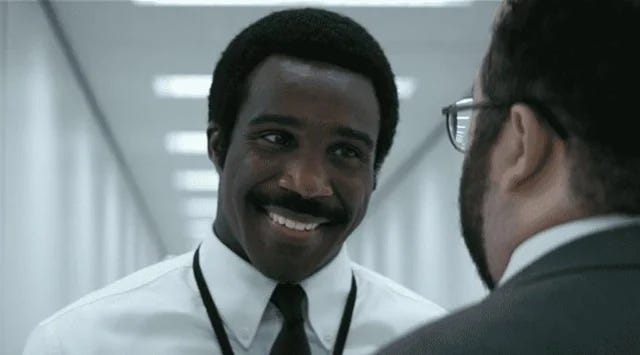

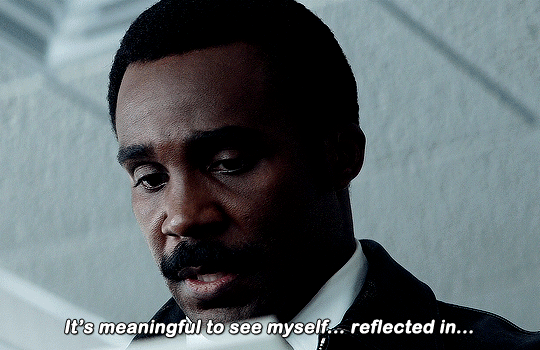



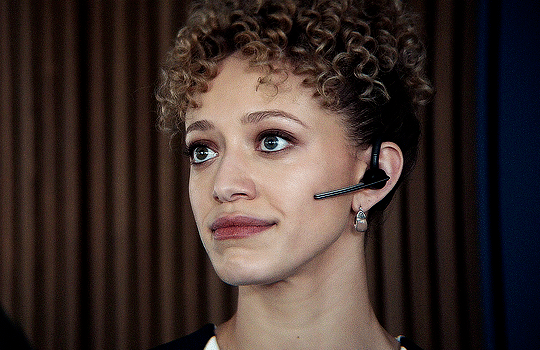


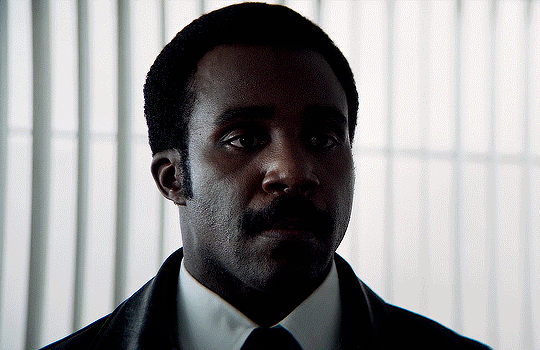

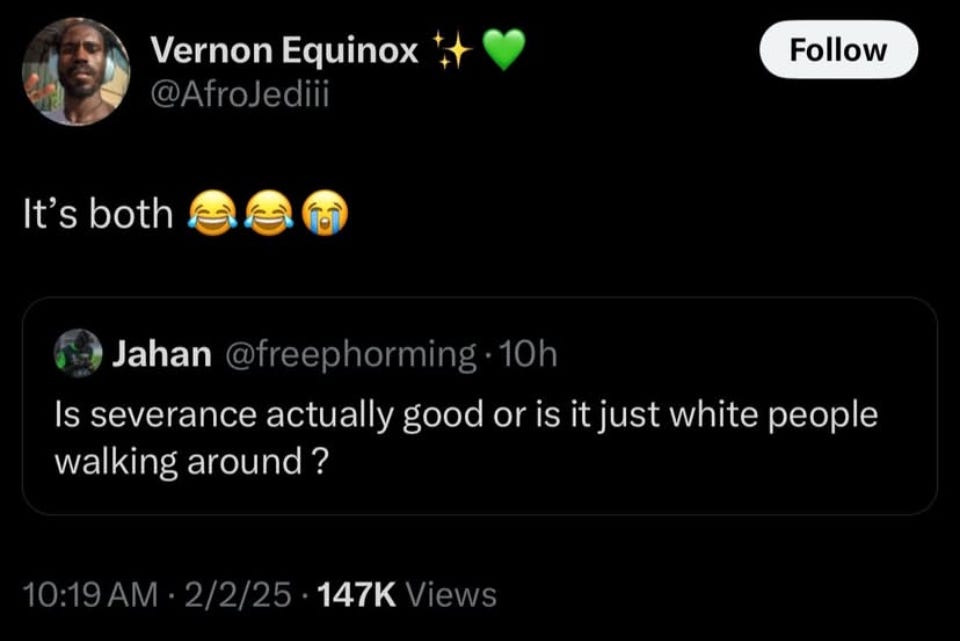
A show about white people walking around SENT ME. In their podcast, Tramell Tillman says one of the first things he asked about Milchick as a character is whether or not he knows he is Black. It ends up being an interesting conversation with Tillman, Stiller and Scott.
This had me cackling!! Lovedddd this piece